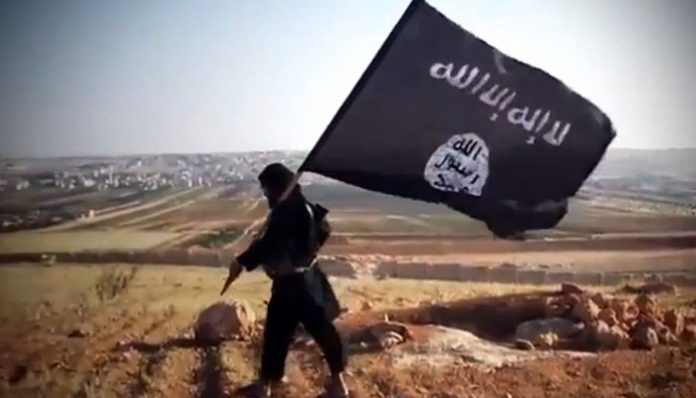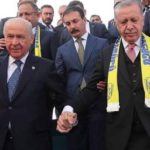That so few people even knew the name Abu Ibrahim Al-Hashimi Al-Qurashi was one of the most extraordinary features of the killing of Daesh’s second leader in the last three years. Reports announcing his death last week — he blew himself up during a US special operations mission in northwest Syria — was the first most people had heard of him. He was not so much low-profile as no-profile. He made no great speeches and released no videos. He was in the shadows.
Contrast this with his predecessor, Abu Bakr Al-Baghdadi, who gave a sermon as self-styled caliph from the Great Mosque of Al-Nuri in Mosul. Every media outlet in the world wanted to dig up details of his life and movements. President Donald Trump reveled in his death in 2019, saying he had “died like a dog.”
That last week’s operation took place in Idlib province, only 15 km from where Al-Baghdadi died in 2019, also raised eyebrows. In fact, there are many questions left unanswered about all of this. This area of northwest Syria is under the rule of Hayat Tahrir Al-Sham, a rival extremist Islamist group that is fighting Daesh. Some argue that this shows there is perhaps some collaboration. A more reasoned argument is that Idlib is one of the few options in Syria available to a Daesh leader. Accommodating huge numbers of internally displaced people, it may be easier to hide a stranger without being noticed. The house in which Al-Qurashi was holed up was nothing flashy. And how did the US track him down? Did someone from within Daesh betray their leader?
Al-Qurashi had hardly revealed top-tier leadership skills. Certain extremist leaders have had extraordinary charisma, outstanding communication skills or strategic brilliance. Some inspired great loyalty. Osama bin Laden survived until 2011 as the most-wanted man alive and with a $25 million bounty on his head. There is a risk that getting rid of a seemingly average leader could pave the way for someone more troubling.
The leader’s demise will change precious little in the ongoing struggle against Daesh. The group has yet to even acknowledge his death, with most adherents saying nothing. But he will be replaced when those in Daesh find someone with reasonable credentials. Like so many extremist leaders, he will almost certainly have served some time in jail, as had Al-Qurashi and Al-Baghdadi, who were both detained at Camp Bucca, a US facility in Iraq.
Daesh will continue its attacks and we may not even see a lull in activity. How does one assess the group’s potency in 2022? This is challenging. As much as it was famous for being out in the open between 2013 and 2019, its adherents have recently demonstrated a marked ability to hide in the shadows, even in an age of high-tech surveillance.
The UN has estimated that Daesh has 10,000 fighters, but one must wonder how accurate that is. In some ways, Daesh is more dangerous today. Fragmented into autonomous cells, it is tougher to track. It no longer enjoys much of a central command. Based on its claims of responsibility, it mounted more than 2,636 attacks in 22 countries in 2021 — about 50 attacks a week. Funding is an area to work on. The Iraqi capture last October of a major Daesh financier may lead to crucial intelligence.
Daesh adherents remain active in Syria and Iraq. The Gweiran Prison break in Hassakeh last month highlighted their potency. The Kurdish-led Syrian Democratic Forces complain of a lack of support internationally — and they have a point. They do not have the resources to handle the threat of thousands of Daesh fighters in more than 20 different prisons. Gweiran will not be the last attempted Daesh breakout. In addition, the SDF has to maintain control of Al-Hol camp, with a population of 62,000 Daesh family members. Other countries could and should share the load by taking responsibility for their own nationals. Daesh has, as ever, carried out more attacks in Iraq than anywhere else.
Daesh also has a sizable presence in North Sinai but has not carried out a major attack there since 2019. In Libya, its strength has dwindled, while in Yemen it spent much of 2018 and 2019 fighting with Al-Qaeda.
Central Asia, especially Afghanistan, is a major worry. Here, Daesh-Khorasan has been a grateful beneficiary of America’s departure and Taliban takeover. It carried out the brutal bombing of Kabul airport last August as US forces and their allies were evacuating.
In various regions of Africa, Daesh affiliates pose a growing threat. Its West Africa province is highly active, as is its affiliate in the Sahel. Daesh’s attacks in Mozambique show it even has a foothold in Southern Africa.
Many regimes might not like to see its collapse. For example, President Bashar Assad of Syria fueled the Islamist insurgency against his rule by releasing extremists from Sednaya Prison in 2011. The Syrian regime benefits from having an Islamist threat lurking in the shadows, meaning Daesh can be a helpful enemy.
Al-Qurashi’s demise will change precious little in the ongoing struggle against the terror group.
Chris Doyle
Europe and North America have recently seen a massive drop in the number of attacks. One assumes this is just part of a strategy to focus on Muslim-majority countries for now. But a threat does still exist from homegrown sources, those inspired by Daesh and Al-Qaeda who are willing to carry out lone wolf attacks.
Most responsible actors want to eradicate groups like Daesh. President Joe Biden declared the operation against Al-Qurashi to be a major victory for the US, and he will hope it also boosts his flagging poll numbers. However, all too often, Washington’s approach is dominated by a desire to kill individuals, not to address the conditions that allow groups like Daesh to flourish. This remains the great weakness in the US and European approaches.
Local grievances and weak governance are the lifeblood for Daesh affiliates and Al-Qaeda. They feed off the widespread disenchantment found in Iraq, Syria, West Africa, the Sahel and Afghanistan. It is hard to determine any significant initiatives to address this, while America’s departure from Afghanistan was a signal it has given up. As long as millions feel they have no future and are excluded, the extremists will find the few thousand followers they need to keep going. Finding a replacement leader will be the least of Daesh’s challenges.
By: Chris Doyle is director of the London-based Council for Arab-British Understanding (CAABU). Twitter: @Doylech
Source: Arab News
***Show us some LOVE by sharing it!***



